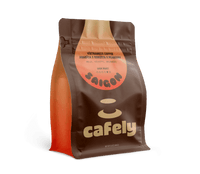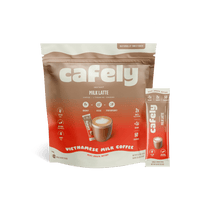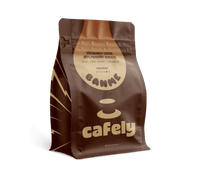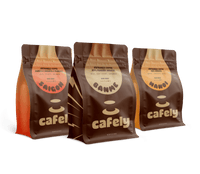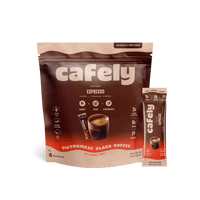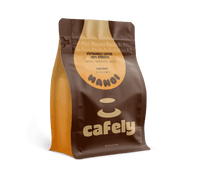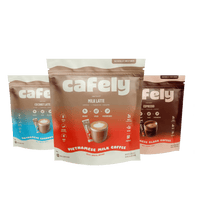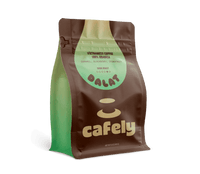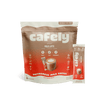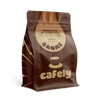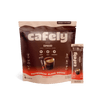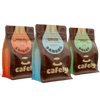You’d think fasting would be simple — just stop eating. But the minor details matter, especially if you’re fasting to lose weight or improve metabolic health. Subtle changes in your consumption can easily break a fast, even certain drinks.
In this guide, we’ll take you through ten common slip-ups that can break a fast, even when your intentions are solid.
Overview of Common Fasting Methods
Before we dive into what breaks a fast, it’s worth looking at the why and how people fast in the first place. Your approach to fasting might depend on your dietary goals, faith, and schedule.
Intermittent Fasting (IF) Techniques
Intermittent fasting is practiced to improve metabolic health and weight management.
Here are the most common IF methods:
- 16:8 — Fast for 16 hours, eat during an 8-hour window. This is one of the most popular because it fits around a standard workday.
- 18:6 — A tighter version of the 16:8, this is often used by people chasing more aggressive results.
- 5:2 — Eat normally for five days, then eat on two non-consecutive days.
- OMAD (One Meal a Day) — The method is in the name: eat one large meal at the same time every day.
- Alternate-Day Fasting — Eat one day, fast the next. It’s a bit extreme, but some people swear by it.
These fasting techniques allow for some flexibility. That means you can drink water, black coffee, and sometimes bone broth or electrolytes, depending on how strict you’re being.
However, the beverage should not contain any (or very few) calories.
Religious Fasting Traditions

These are less about fat-burning and more about faith, discipline, and spiritual renewal.
While practices vary, they often follow strict guidelines and shared rituals:
- Ramadan (Islamic) — During Ramadan, followers of Islam complete daily fasts from down to sunset for a month. This means no food or drink (not even water) during daylight hours.
- Lent (Christianity) — This is a 40-day period of reflection and sacrifice before the Christian celebration of Easter. Some people avoid specific foods like poultry, beef, lamb, pork, ham, and sweets, while others reduce overall intake.
- Yom Kippur (Judaism) — Observed once a year as a day of atonement for sins, Jews complete a 25-hour fast from both food and drink.
- Buddhist fasting — This often involves skipping solid food after noon or refraining from certain indulgences during retreats.
- Hindu Fasting — Though this varies widely, from full-day fasts with no food or water to fruit-only diets, it usually takes place during specific festivals. Hindus fast to purify the mind and body and cultivate self-control, which also strengthens their devotion to deities.
What Breaks a Fast?
The answer to this question depends on why you’re fasting. Are you doing it for blood sugar control or spiritual reflection? Fat loss or tradition?
Let’s look at some specifics:
Breaking Health-Based Fasting
When fasting for health, the goal is to stay in a fasted state — low insulin, minimal calories. Even 1–5 kcal can disrupt this. Some purists cut off at 1 kcal; others allow up to 10, especially on longer fasts.
But it's not just about calories. Zero-calorie products like flavored waters, artificial sweeteners, or supplements with binders can still trigger insulin or digestion, depending on your sensitivity.
Then there’s the gray area — bone broth, MCT oil, or buttered coffee. These may not spike insulin but do stimulate digestion, potentially disrupting autophagy (your body’s cell-repair process).
If you're fasting for weight loss or focus, they may be fine. For a "clean" fast, it's best to avoid them entirely.
Breaking Religious Fasting
The rules change entirely for religious or spiritual fasting. Instead of controlling insulin, the focus is on discipline, intention, and devotion.
Ramadan, for example, involves strict fasting for all food and drink, including water, from sunrise to sunset. Yom Kippur and other sacred fasts follow similar principles, sometimes extending restrictions to medications or oral hygiene routines.
In these cases, what breaks a fast isn’t physical. It’s tied to the faith’s values, teachings, and rituals. Even a sip of water may be considered enough to nullify the fast.
Eight Common Mistakes People Make While Fasting
Fasting can be a powerful tool if you’re doing it right. However, even the smallest mistake can throw off your rhythm or leave you feeling worse than when you started.
Here are eight things that trip people up the most:
1. Breaking the Fast With Heavy or Sugary Meals
The first meal you have after a long fast can make or break your whole experience. Your first instinct might be to order a big, comforting plate of pasta or other carb-loaded meals. You’ll likely end up feeling bloated, sleepy, and weirdly hungry an hour later.
This happens because your blood sugar levels shoot up quickly and then crash just as hard. Instead, easing in is the better move. Break your fast with light soups, roasted vegetables, or lean proteins. These food types can help your digestive system restart gently without overwhelming it.
2. Not Staying Hydrated
When you're not eating, you're also not getting hydration from food. Fruits, soups, and cooked grains can significantly contribute to your daily water intake. When you're dropping them, it's surprisingly easy to get dehydrated. Dehydration doesn't always feel like thirst — it might show up as brain fog, fatigue, or a headache.
Aim for a steady trickle of water throughout the day. If you’re fasting for more than 16 hours, consider adding a squeeze of lemon or electrolytes to help your body retain fluids more effectively.
3. Overdoing Caffeine

Black coffee and unsweetened tea are usually fasting-friendly. But going overboard on caffeine can trigger jitters, anxiety, heart palpitations, or throw off your sleep balance. Keep it to one or two cups, and cut yourself off early if you want to sleep like a human being.
4. Ignoring Electrolytes
You’re not just losing water when you fast; you’re flushing out sodium, potassium, and magnesium, too. That’s why people sometimes feel lightheaded or get muscle cramps after a long fast.
A sprinkle of sea salt in water, a magnesium supplement, a low-carb electrolyte tablet, or a small glass of mineral water can make all the difference.
5. Fasting Without Enough Sleep or Rest
Fasting already puts your body under extra stress. Poor sleep messes with your hunger hormones, making you more irritable and taking your energy.
When you’re short on rest, cortisol (your stress hormone) shoots up, making fasting feel harder, increasing cravings, and messing with your blood sugar.
If you're fasting, permit yourself to take it easier. Eight hours of decent sleep can do more for your fast than any supplement or biohack ever could. You may also want to consider skipping high-intensity workouts, especially when first starting this type of diet.
6. Expecting Instant Results
A couple of days of skipping breakfast isn't going to transform your life. Fasting is a tool that works best with consistency over time.
Most people don't notice real changes until weeks two and four, and even then, it depends on things like what you're eating when you're not fasting, how you're sleeping, and how stressed you are.
Weight loss, better focus, more stable energy — these benefits accumulate gradually. Set realistic expectations and think long-term.
7. Being Too Rigid
Sticking to a schedule is great unless it becomes a problem. Maybe you’re sick, stressed, or had a bad night’s sleep. Forcing yourself to fast through it doesn’t make you tougher; it just wears you down. Flexibility is part of the process.
8. Not Listening to Your Body
There’s a difference between being a bit hungry and a full-body shutdown. If you’re shaky, dizzy, nauseous, or irrationally angry, your body’s trying to tell you something. Don’t ignore it. You’re not failing if you break a fast early; you’re just adjusting.
Top Drinks to Enjoy While Fasting
Not all drinks are off-limits while fasting for health. In fact, some can make the process smoother, providing bursts of energy and helping to curb hunger.
Let's take a look at the ones that genuinely support a fast:
1. Black Coffee

This one’s a classic for a reason. Black coffee contains close to zero calories (two to five kcals per cup), won’t spike your insulin, and may help blunt your appetite for a few hours. Plus, the energy boost and increased mental clarity will help you get through longer fasts.
Just don’t go overboard on the cups and keep it black — no creamers, sugar, or splashes of milk.
2. Green Tea

If you’re looking for something gentler than coffee, green tea is a go-to.
It’s loaded with antioxidants, including EGCG, which is linked with improved fat metabolism. It also tends to give you a calmer, more gradual focus compared to coffee, so you won’t experience sudden energy spikes or crashes.
3. Electrolyte Water

Electrolyte water replenishes sodium, magnesium, and potassium, three minerals your body still burns through, even without food. Drinking some can help you avoid headaches, lightheadedness, or the afternoon slump. Make sure you’re buying unsweetened, zero-calorie waters that don’t sneak in added sugars or artificial ingredients.
4. Apple Cider Vinegar (ACV)

Some people swear by a tablespoon of ACV in water to start their fast. While the taste is… acquired, it may help with blood sugar stability and aid your body in digesting foods. Keep it diluted, though. One tablespoon in a tall glass of water is plenty.
5. Bone Broth

Technically, bone broth isn’t a true fasting drink. It contains protein and calories, which means it will break a clean fast, especially if your goal is autophagy or metabolic rest.
However, it’s helpful if you’re doing an extended fast or need something nourishing near the end of your fasting window. A warm mug of broth can be a gentle transition back into eating. Just know where you stand on the fasting spectrum before reaching for it.
Tips for Overcoming Cravings
Cravings during a fast aren’t uncommon, especially if you're new to it. Most of the time, they’re more mental than physical. A few small habits can help you curb the cravings and get you to your goals.
- Stay hydrated— A lot of “hunger” may be dehydration in disguise. Before you grab a snack, try drinking a full glass of water. A pinch of sea salt or a squeeze of lemon can help keep you feeling full.
- Distract yourself— Cravings fade faster when your brain is busy. Go for a walk, put on some music, call a friend, read a chapter of something that has nothing to do with food. You’d be surprised how often cravings disappear when your attention shifts.
- Eat smarter before you fast—If your last meal was just carbs, you’re probably going to crash. Pre-fast meals that include fiber, such as vegetables, legumes, and oats, along with protein sources like eggs, tofu, or chickpeas, help keep you fuller for longer.
- Use mindfulness or deep breathing techniques — Sometimes, it’s not hunger but habit. When cravings hit, pause and check in with yourself. Are you bored? Anxious? Stressed? A few slow, deep breaths can reset your nervous system and take the edge off.
- Try herbal teas to curb appetite — Peppermint, ginger, cinnamon, and other herbal teas are natural appetite suppressants. Plus, sipping on tea gives your mouth something to do and keeps you distracted from eating.
Who Should Avoid or Modify Fasting
Fasting isn’t for everyone’s biology. While some people thrive with time-restricted eating, others may need to take a different approach or skip it altogether.
If you’re in one of the groups below, fasting might do more harm than good, or, at the very least, require extra care and guidance.
- Children, teens, and anyone pregnant or breastfeeding.
- Anyone with a current or past eating disorder.
- People managing diabetes or using insulin.
- Anyone taking medication that requires food.
Before starting a fasting regime, talk to your doctor, especially if you have any of the conditions listed above. Fasting changes how your body functions, so it’s smart to check in with someone who knows your medical history. A quick consultation can save you from unexpected complications later.
10 Frequently Asked Questions: Intermittent Fasting
Though it seems simple enough, fasting can get murky when you start. Here are some of the most common questions people have when they’re getting started or hitting a wall.
1. Does Coffee Break a Fast?
Black coffee is usually considered fasting-safe. It has almost no calories and may even support appetite control and fat burning. Just don’t add anything to it. Sugar, syrups, or a splash of milk will interrupt the fasting state.
2. Do Artificial Sweeteners Break a Fast?
Some sweeteners, like sucralose or aspartame, might trigger insulin in sensitive people. While they don’t add calories, they could confuse your system. If you’re fasting for metabolic health or autophagy, it’s better to avoid them.
3. Can I Exercise While Fasting?
Yes, many people do exercise while fasting. Some professional athletes even play intense sports like soccer while fasting during Ramadan. But for the every day faster, light cardio, walking, or strength training can all be safe, but be sure to monitor your energy levels. Hydration and electrolyte balance matter more than ever if you're working out without eating first.
4. Does Taking Supplements Break a Fast?

It depends on what's in the supplements. Vitamins that contain sugars, oils, or proteins like BCAAs or fish oil may break your fast. Pure capsules with no added fillers are usually fine but always read the label closely.
5. Can I Drink Bone Broth During a Fast?
Bone broth has calories and protein, so it technically breaks a fast. But it’s often used in modified or extended fasts and the ketogenic diet for gut support and nourishment. As long as you know your goals, including it is often okay.
6. Is Fasting Safe Long-Term?
For many people, yes, it can be safe. But it depends on how you fast and how your body responds. Short-term intermittent fasting is generally safe, but long-term or extended fasts should be done with medical oversight, especially if you have health conditions.
7. How Do I Avoid Cravings While Fasting?
Hydration is key, as most cravings are actually just thirst or habit. Focus on nutrient-dense meals when you do eat, and use tools like herbal tea, and breathwork, or distractions like walking or reading to get through tough moments.
8. Can You Fast While on Medication?
Some medications have to be taken with food to avoid side effects or help your body absorb them. Taking these without eating first could be risky. Always check with your doctor before changing your eating schedule around a prescription.
9. Does Lemon Water Break a Fast?
A squeeze of fresh lemon in your water won’t break your fast. It adds minimal calories and has no real impact on your insulin levels. Just steer clear of bottled lemon drinks or sweetened versions, which often include sugar or additives.
10. Will Fasting Help Me Lose Weight?
Fasting has helped many lose weight, as it leads to a natural reduction in calorie intake and improved insulin sensitivity, which can support fat loss. Long-term success ultimately depends on maintaining a healthy diet, staying active, and being consistent.
